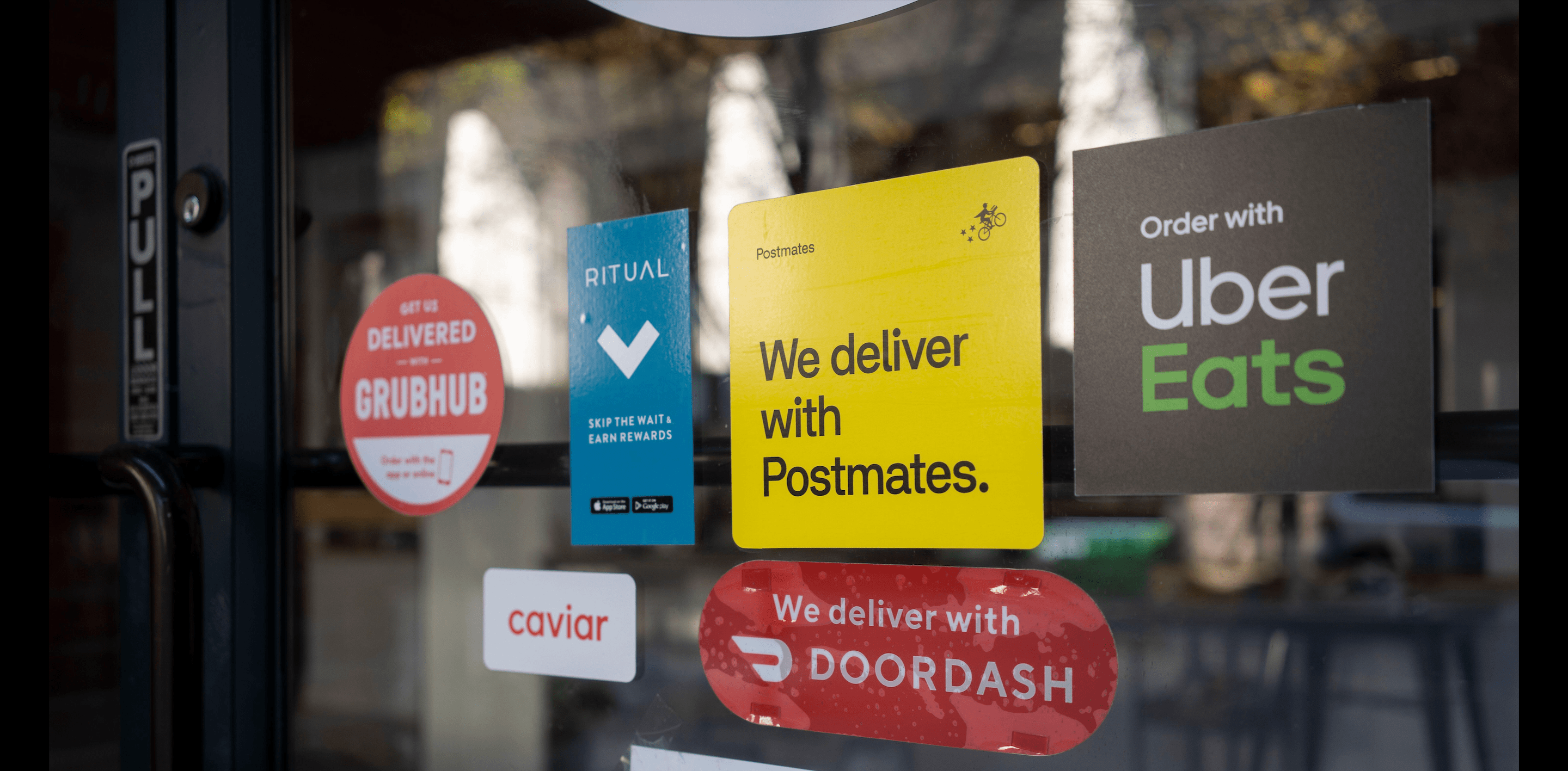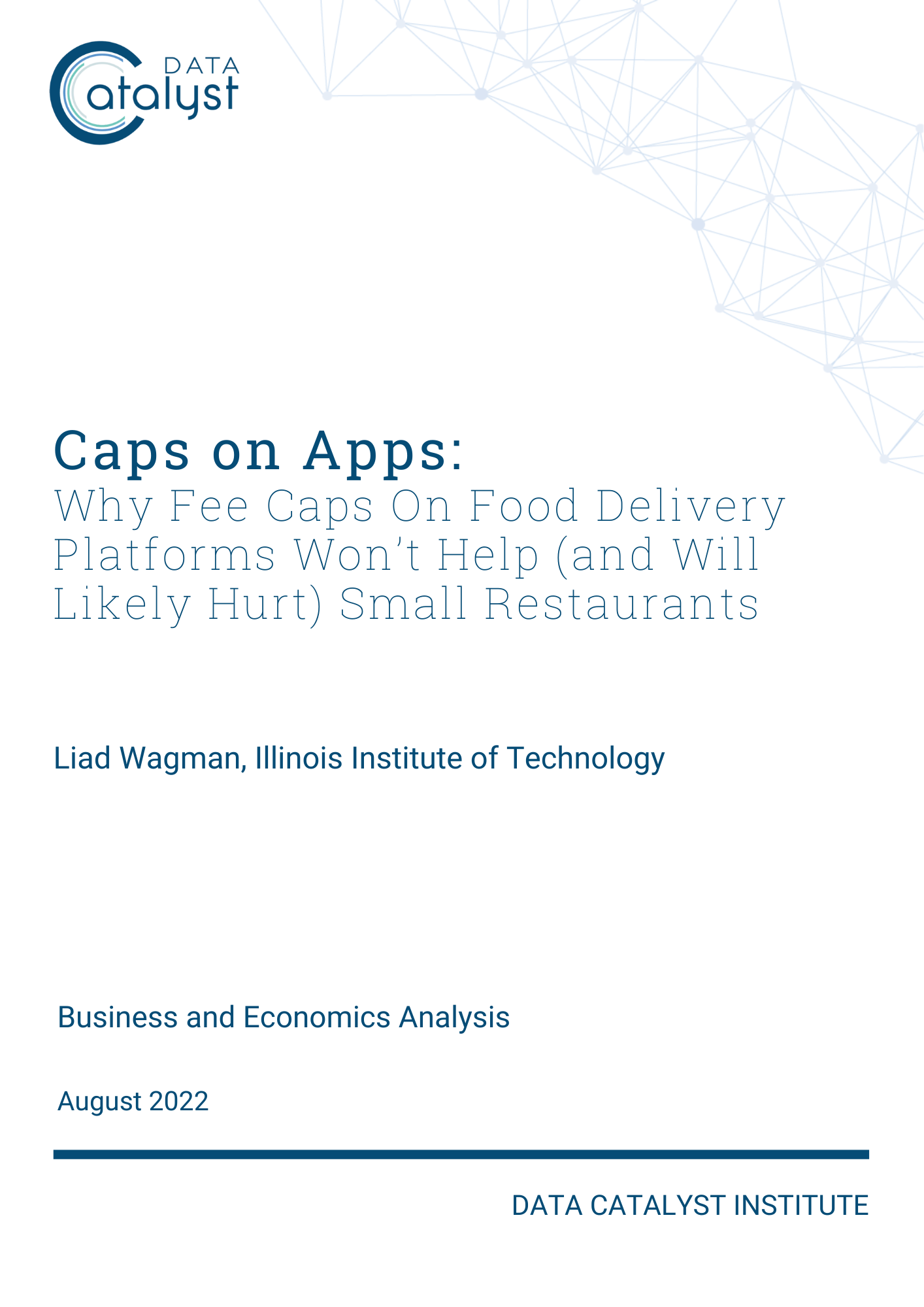
Caps on Apps: Why Fee Caps On Food Delivery Platforms Won’t Help (and Will Likely Hurt) Small Restaurants
August 2022
Many digital platforms such as eBay, Uber, and Airbnb are multi-sided marketplaces that connect buyers with sellers, riders with drivers, and guests with hosts. Balancing the interests of very different users on both sides of a marketplace is a challenging process. However, despite evidence of platforms’ continuing efforts to effectively balance supply, demand, pricing, offerings, and service quality, concerns that marketplace operators mistreat, abuse, or exploit participants on one side of the marketplace have triggered competition investigations and legislative efforts in several jurisdictions.
A recent example of such regulation occurred in New York City, where the City Council, to “help ensure the survival” of local restaurants, passed a new law that caps delivery services’ fees on restaurants: 15 percent per order for delivery, and 5 percent per order for all other services except payment processing fees. However well-intentioned these caps may be, economic research shows that price cap policies frequently backfire and may harm the very stakeholders they were supposed to protect. Specifically, in the restaurant delivery domain, one very recent study found that fee caps resulted in fewer orders to independent restaurants and more orders to chain restaurants – presumably the opposite of what legislators intended.
The fee cap policies in New York and elsewhere offer cautionary tales of how policymakers who ignore economics and empirical research when regulating emerging technologies and marketplaces can harm constituents. It would be preferable for policymakers to use their oversight power to learn about new markets and then encourage market-driven solutions (e.g., tiered fees), that are dynamic and evolve with the industry and are not confined to a particular geographic area.
This paper reviews some of the available research on the regulation of multi-sided marketplaces, as well as some specific aspects of the New York City fee cap law on delivery apps operating in the city. It concludes that government-imposed fee caps – with rare exceptions – are bad policy.
Lawmakers in New York and other localities aiming to improve market conditions for smaller restaurants should instead consider policies that (1) promote platform competition (including by reducing barriers to entry for new delivery services and encouraging consumers and restaurants to use several platforms) and (2) provide direct support to smaller restaurants.
Liad Wagman is Data Catalyst Institute Competition Fellow and John and Mae Calamos Dean Endowed Chair and Professor of Economics, Stuart School of Business, Illinois Institute of Technology. Wagman does not consult for nor hold stock in any of the referenced companies.

Caps on Apps: Why Fee Caps On Food Delivery Platforms Won’t Help (and Will Likely Hurt) Small Restaurants
Liad Wagman
August 2022